In university classrooms, on church pews, and at the edges of rivers and forests, the people of North Carolina learned how the Indigenous Xinka People of Guatemala continue to successfully protect water and land from the Escobal mine. The people of the United States are hungering for living examples of success against seemingly impossible odds. Everywhere we went, people were eager to connect, learn, and offer solidarity, such as at the event below, organized by the Indigenous group 7 Directions of Service against a pipeline in North Carolina.

Meeting around water was sacred. Sheny and the Haw River Assembly exchanged knowledge and strategies. How does CODIDENA (Diocesan Commission in Defense of Nature) train young scientists to monitor water quality? Is there a Clean Water Act in Guatemala? How is water treated and protected in the U.S.? What environmental damage has been done by the Escobal mine? How are micro-invertebrates measured in the water, and why does it matter? These and many more questions were discussed as the Haw River embraced us.
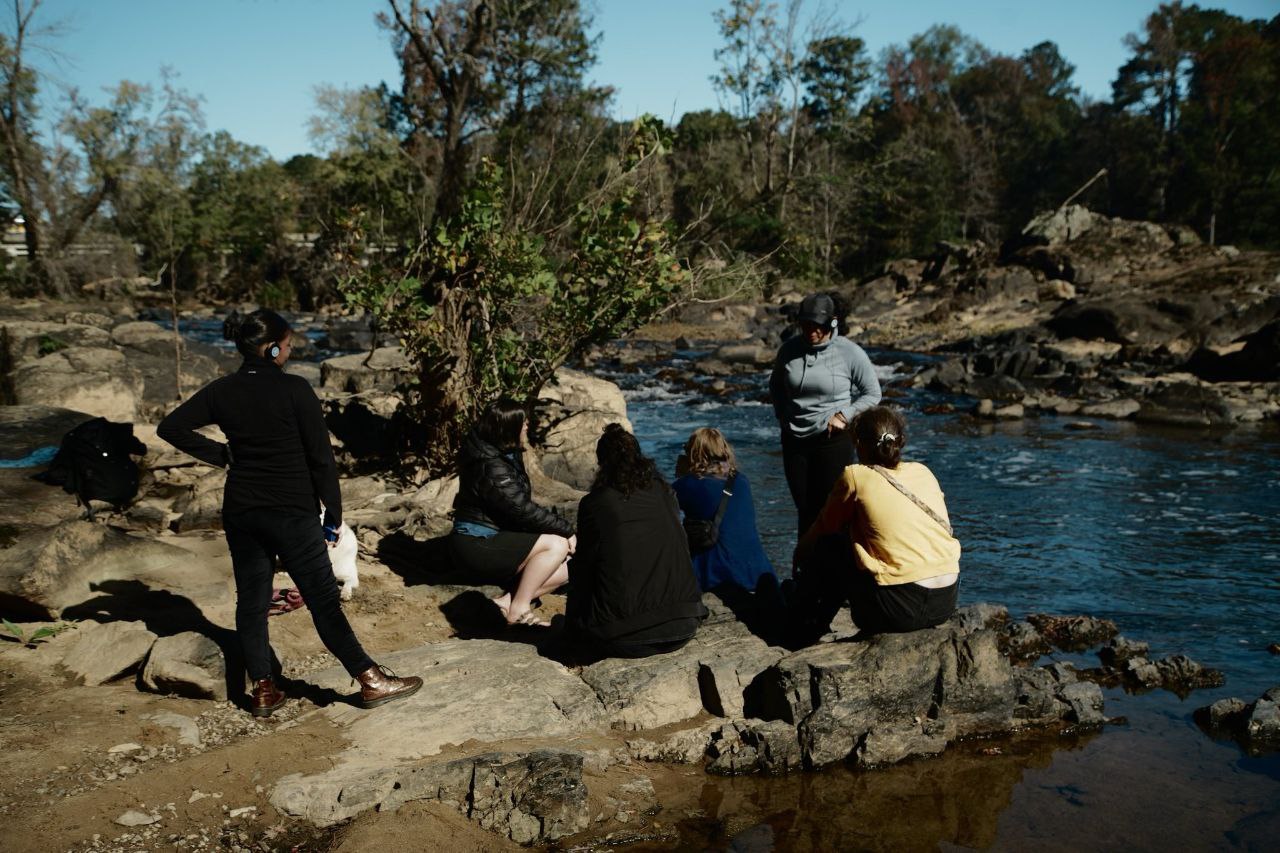
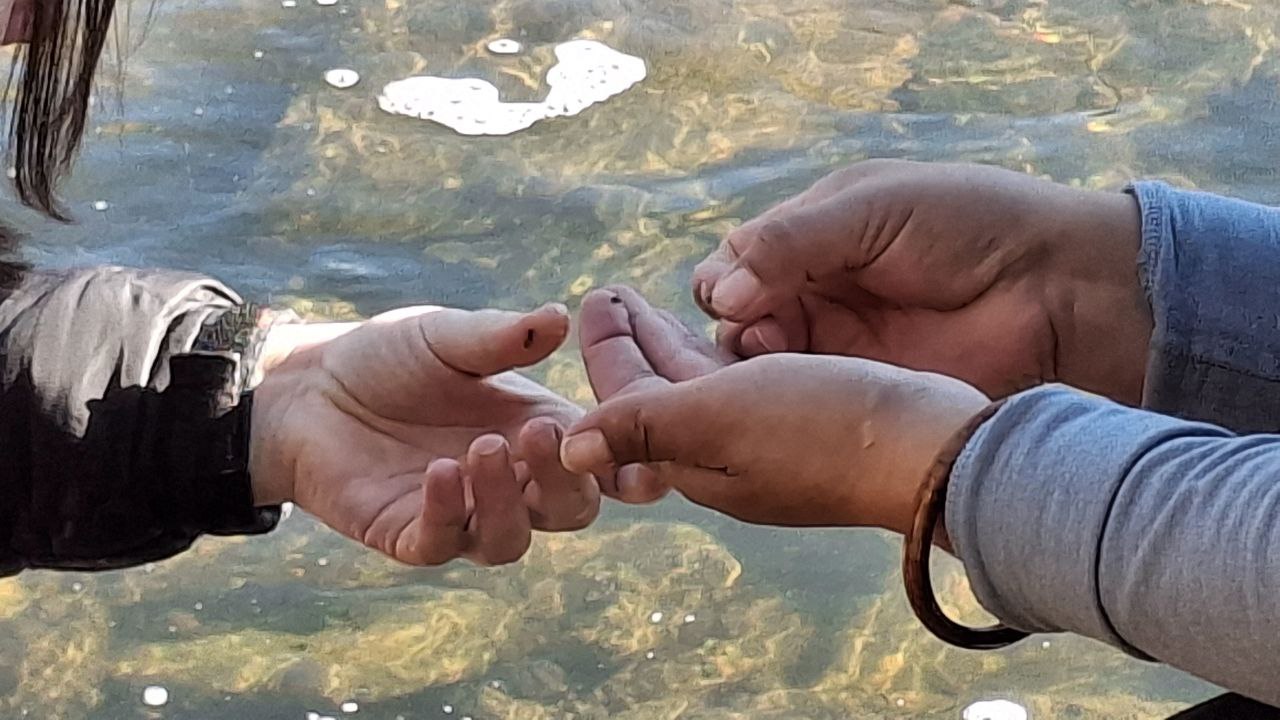
The story of CODIDENA cannot be separated from the story of the Xinka youth. This is what young people learned all the way in North Carolina, thousands of miles away from Santa Rosa—in North Carolina high schools, churches, and universities. Diverse groups of youth listened to stories of 16-year-old Xinkas joining CODIDENA’s Water Monitoring Project to measure water quality and contamination—something the Guatemalan government failed to do, and the mine actively lied about. Youth have power!

“You have to be full of love to sacrifice this much.” This powerful statement was spoken at a North Carolina radio station with an internationally broadcast program (it was done “live” and we are working on getting the recording — stay tuned!). Sheny’s words referred to the immense costs of peacefully resisting the Escobal mine. When the powers-that-be are coming after a movement with defamations, private security, disinformation, political threats, and much more, the only thing to keep us steady for the long run is a relationship-based love for all life—water, trees, family, strangers, birds, friends, and microscopic riverine creatures.
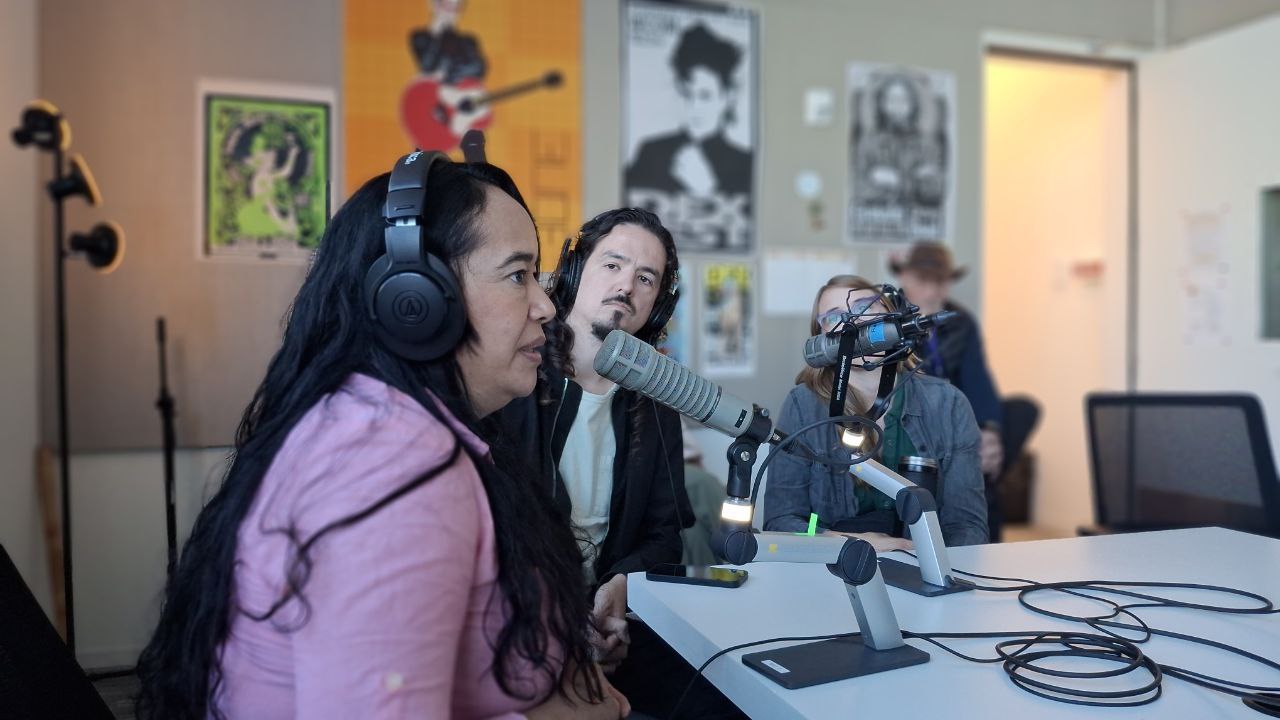
The example of the Xinka struggle must reach many people. Their struggle has so far achieved a level of success almost unheard of: An Indigenous People temporarily stopping one of the largest silver mines on the continent—owned by Pan American Silver, one of the world’s largest mining transnationals and the second-largest primary silver producer globally. Not without cost, their organized work is steadfast in its commitment to protect water and earth, people and the future.
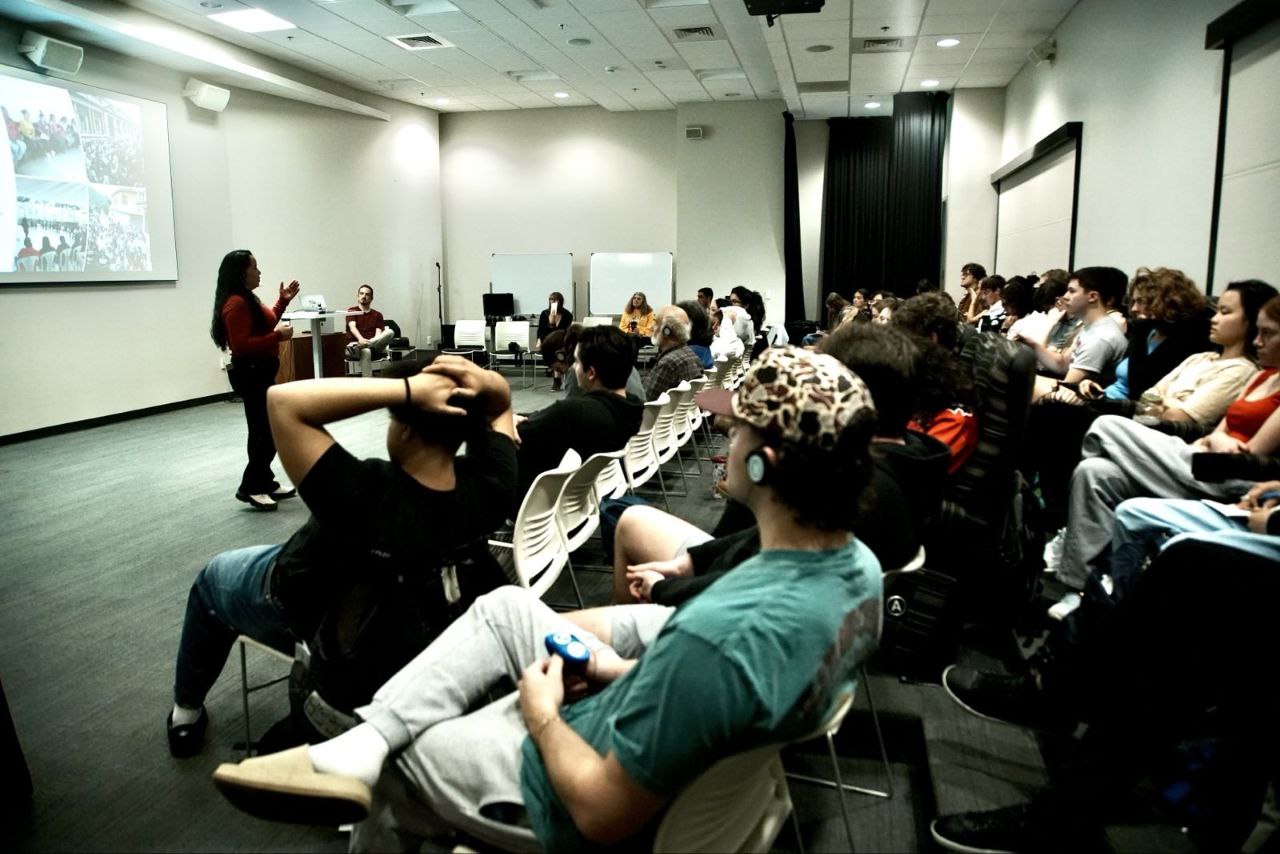
Learn more from these articles published by people who were inspired by CODIDENA and the Xinka People’s struggle while in North Carolina!
“A Tale of Taking Back the Land” in The Nubian Message (2 minute read)
“Human rights defender gives keynote on Xinka Indigenous people and environmental struggles in Guatemala” in Today at Elon (3 minute read)
NISGUA is honored to have played a crucial part in strengthening networks between the people of the United States and the Xinka People of Guatemala.


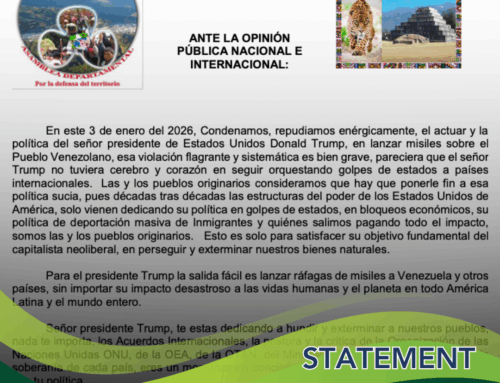
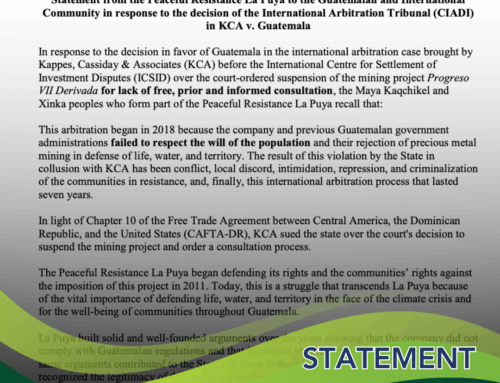

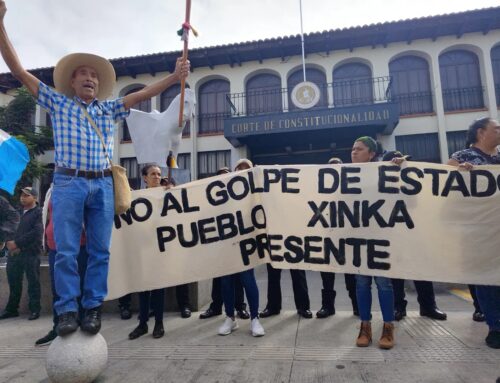
Leave A Comment